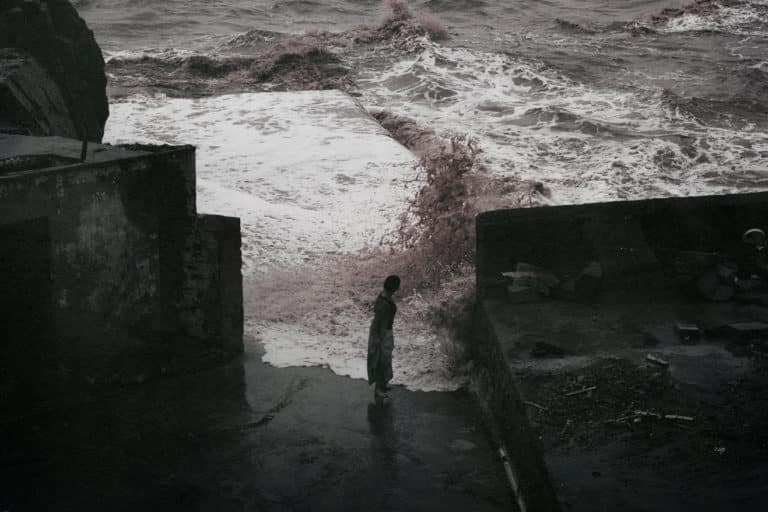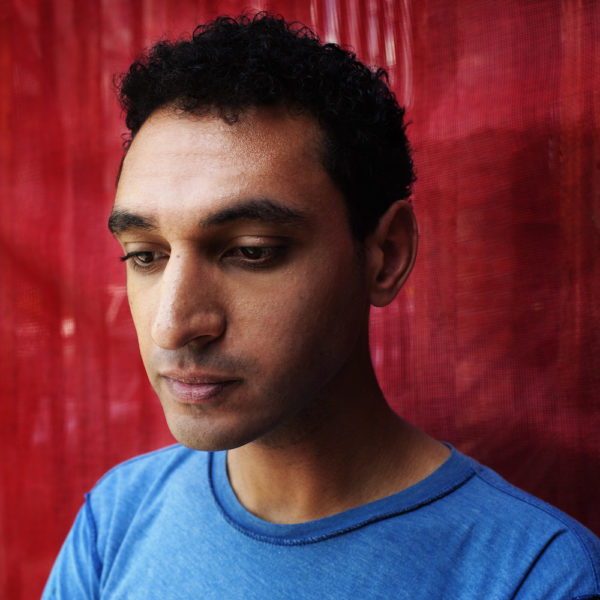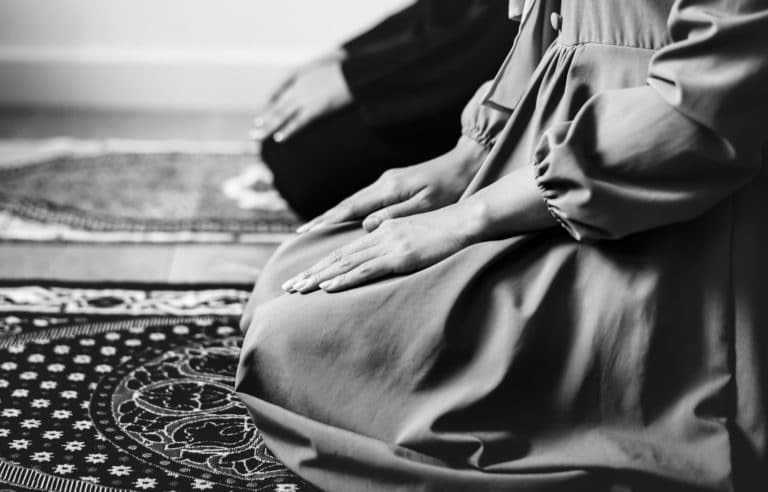
Image by 美撒郭.
A Family of the Book: Joseph’s Noble Spirit in All
These are special days. The coincidence of the Jewish High Holy Day of Yom Kippur and the sacred Islamic celebration of Eid Al-Adha presents us with an opportunity to retell the ancient stories that bind us together as we look forward to what must be a common future.
One of the most cherished tales of Joseph in Egypt that the Jewish and Muslim people of the Middle East have in common is narrated in the twelfth chapter of the Qur’an (Joseph). It tells of how Potiphar’s wife, Zuleika, is mocked by fellow aristocratic Egyptians for being infatuated with Joseph, a mere Hebrew slave boy. Zuleika, wanting to prove a point, invites her friends to a grand banquet at her home in order to present Joseph to them in the flesh:
“And when she heard of their sly talk, she sent to them and prepared for them a cushioned couch (to lie on at the feast) and gave to every one of them a knife and said (to Joseph): Come out unto them! And when they saw him they exalted him and cut their hands, exclaiming: ‘Allah Blameless! This is not a human being. This is none other than some gracious angel.’”
Zuleika’s guests were so taken by the physical beauty of Joseph that they were distracted and injured their hands with the knives meant to cut the apples she had given them. As they drew their own blood, she reminded them that she had to look at Joseph every day. Needless to say, her friends didn’t tease her on this issue after that day.
Joseph had the appearance of a noble angel, but he was very much a human being. And the story of this particular prophet had tragic beginnings many years before he found himself in a position of power in Egypt. Back in his youth, still among the Israelites, Joseph experienced a series of revelations through his dreams that spoke of his impending career in prophecy. He confided his dreams to his father, the Prophet Jacob, who told his son of the greatness that awaited him in his future.

Joseph’s brothers, consumed by jealousy, took him out into the desert and abandoned him in a well. They returned to their father and told him that Joseph had been killed by a wolf, a story that Jacob never believed. Over the loss of his favored son, Jacob cried so prolifically and bitterly that he eventually went blind.
For Joseph, though, there was still more heartbreak ahead of him. He was discovered in the well and sold into slavery finding his way to Egypt and Zuleika’s house. Through his visionary talents of the interpretation of dreams, Joseph rose through the ranks of Egyptian society. When the King of Egypt was perplexed by a dream of seven fat cows being eaten by seven skinny ones and seven ears of corn being replaced with shriveled ones, he sent for Joseph. The prophet predicted accurately that Egypt would face seven years of prosperity followed by seven years of famine and that the king should prepare for it so as to evade a disaster. For his part, the king prepared wisely and spared the people of Egypt from grave suffering. He appointed Joseph to oversee Egypt’s assets.
Forty years have passed and back in the land of Jacob and Rachel, of Joseph’s brothers and Abraham’s tribe, Israel was not spared the effects of the famine. They sorely lacked Joseph’s prophecy and his vision. The Qur’an then tells us that Jacob, sensing Joseph, sends the other brothers to Egypt instructing them to come back with food and grain. Arriving in Egypt, they unwittingly appear before Joseph. They don’t recognize their little brother who has risen to a position of might, dressed in his Egyptian regalia. They ask for the food and the grain.
After some conversation, Joseph is no longer able to contain his emotion. Overcome, he reveals himself to his now terrified brothers. He embraces them. He asks them eagerly, “How is our father?” Joseph gives them the gift of the food and the grain that they came in search of. He relieves them from hunger and alleviates their fear. He sends them back with proof that he is alive and it is this joyful proof from the miraculous hands of a prophet that brings back the ancient Jacob’s vision after 40 years of blindness.

Joseph’s position in Egypt was such that he could have put his brothers to death on the spot. After all, these are the same brothers who left him to die in a well; the same brothers whose ugly jealousy resulted in years of slavery, imprisonment, and subjugation for Joseph. But Joseph chose to forgive and, in so doing, found peace.
He may not have made the decision to forgive his brothers on the spot, but the fact is that something inside the prophet’s soul found forgiveness and peace for the brothers who had so gravely wronged him. This is proof, if we needed it, that Joseph’s angelic beauty was not just physical and external but also internal as well: Joseph possessed a profound loveliness of spirit.
And that’s just the thing. Time heals even the most tragic of wounds. In fact, the most common Arabic word for “human being” is insaan (إنسان), which shares its roots with the word insaa (نسى), “to forget.” To “forgive and forget” may be one of our great gifts as human beings. While we may never forget our wounds, we can choose to forget the grudges we hold. In time, this will ease our pain and cause our resentments and grief to subside paving the path to trust, forgiveness, hope, and, eventually, peace.
Islamic thought has asked us to look at the example of the prophets. That’s significant because of the fact that Joseph and all the prophets were human beings with the flaws of human beings. No prophet was perfect and Islamic tradition has never asked its followers to aspire to the example of the Angels, the perfected ones. Instead we are given the gift of our prophets. Let’s share their stories. Let’s sing their songs. Let’s break bread together over what we and all the people of the desert have in common. Like Joseph, let’s give each other gifts not only of grain but also of forgiveness.

Today I also think of a beautiful Islamic tradition: invoking the words “peace be upon him” or “peace be upon her” after uttering the name of a prophet, saint, or archangel. May peace be upon Abraham and Isaac, Rachel and Rebecca, Jacob and Joseph, Hajjar and Sarah, Noah and Jesus and Mohammed and all of our common mothers and fathers whose stories inspire our souls to betterment and brilliant light.
These are just some of the figures that are cherished by all three of the Middle Eastern monotheisms (Judaism, Christianity, and Islam) that the Qur’an refers to collectively as Ahl Al-Kitab (أهل الكتاب). This Arabic phrase is most commonly translated as “The People of the Book” but here the most common translation is a flawed one: the Arabic word “ahl” means “family” and not just “people.” A better translation would be “Family of the Book.”
We are a family after all. Despite our conflicts, blood will always be thicker than water. Peace be upon all our prophets and saints, upon all our matriarchs and patriarchs and upon all our ancestors of generations past. And may I humbly add a prayer, on this coincidence of Eid Al-Adha and Yom Kippur, that there will be peace one day upon us as well.

